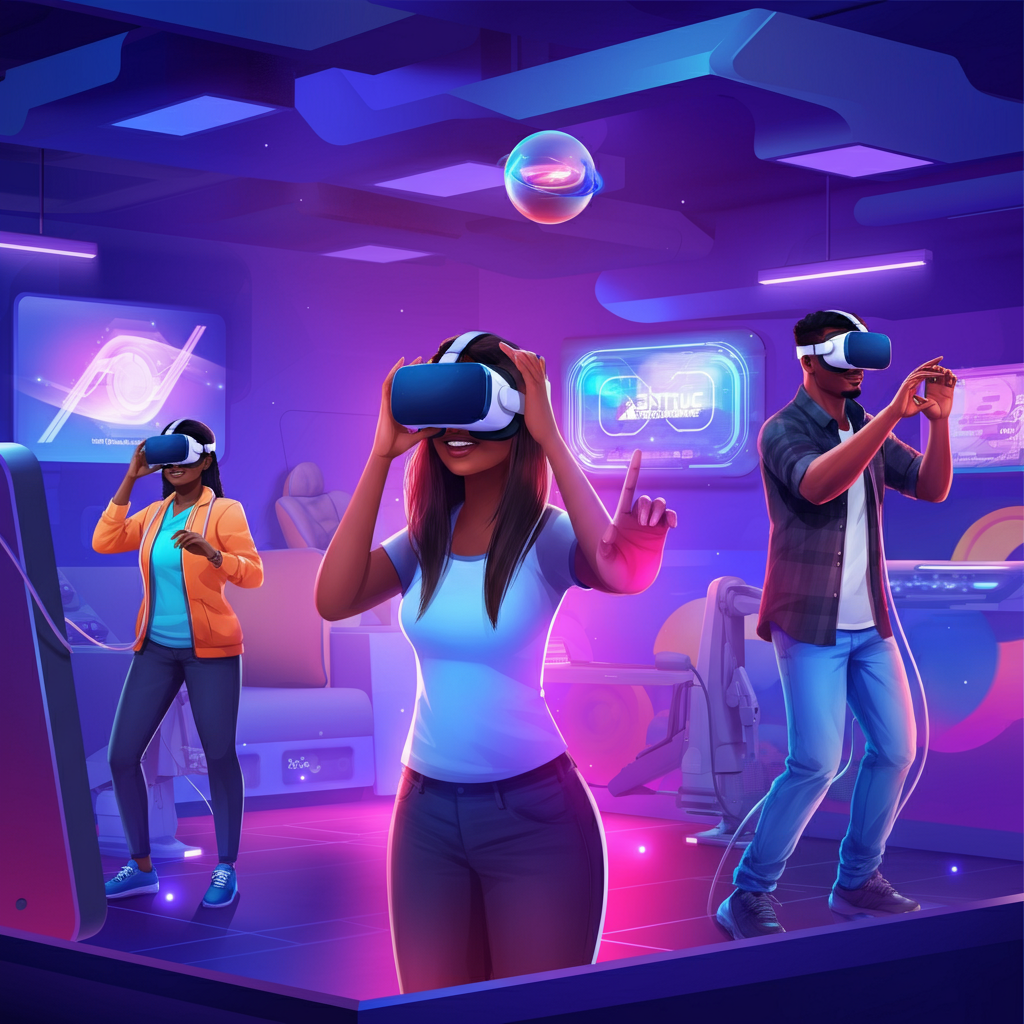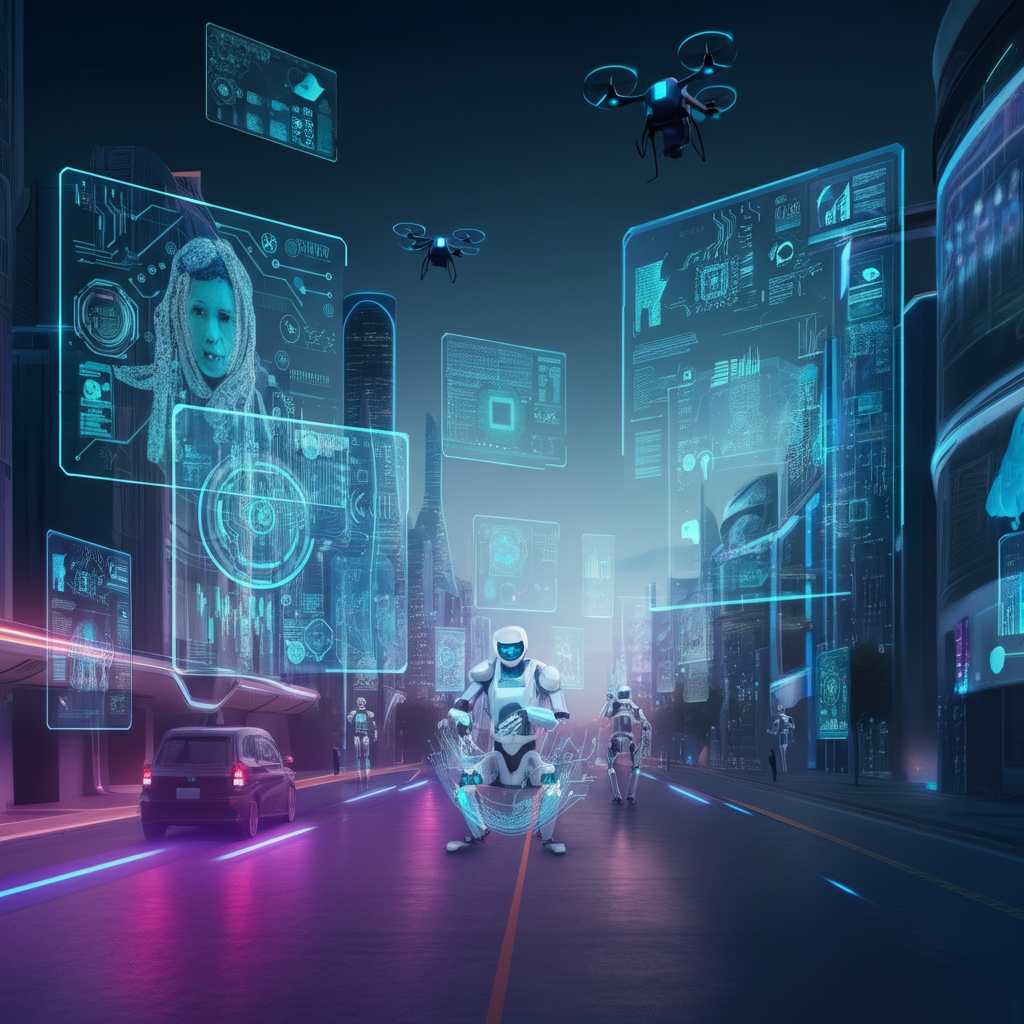Virtual Reality in Today’s Entertainment: How VR Is Changing the Game
Introduction
Entertainment has always been about immersion. We watch, we listen, we interact, and we feel. But now, the way we experience entertainment is evolving at a pace previously unimaginable, and at the center of this evolution lies Virtual Reality (VR).
Virtual Reality is no longer just a concept from science fiction; it has become a groundbreaking technology transforming how we consume content. From gaming to live concerts and even cinematic experiences, VR is reshaping the entertainment industry in innovative ways.
This blog will unravel the ways VR is changing entertainment, explore its current applications in popular media, and analyze what lies ahead in this exciting realm.
What is Virtual Reality, and Why is It Revolutionary?
Virtual reality refers to a fully immersive digital environment where users can interact with objects, landscapes, and even other people using specialized hardware, such as VR headsets and hand controllers. With advancements in technology, VR creates an environment so lifelike that users feel as if they are part of an alternate reality.
The potential of VR in entertainment is revolutionary because it takes audience engagement to the next level. Unlike traditional forms of media consumption, VR turns spectators into participants. It’s no longer about viewing a story or scene; it’s about stepping into it.
Fun Fact
The global VR entertainment market is projected to reach a staggering $57.55 billion by 2030. It’s clear VR is not just a passing trend but a booming industry.
How VR Is Transforming the Entertainment Landscape
1. Immersive Gaming
The gaming industry was among the first to adopt VR, and rightly so. VR offers gamers the ability to step into alternative universes, create their own worlds, and engage with characters and settings like never before.
Titles like Half-Life: Alyx, Beat Saber, and The Walking Dead: Saints & Sinners have become widely celebrated for elevating VR gaming standards. When players put on a VR headset, they can grab virtual items, dodge obstacles in real-time, and interact with game environments as if they were physically present.
Benefits of VR in Gaming
- Enhanced player immersion.
- Increased physical activity due to motion-based controls.
- Unique, multi-sensory engagement.
2. Live Entertainment Events
Missing a sold-out concert or attending a sporting event miles from home are no longer barriers, thanks to VR. With platforms like Oculus Venues and VRChat, users can enjoy live concerts, theater productions, and sports events as if they were attending in person.
Consider watching your favorite artist perform, feeling the crowd's energy around you, and actually looking around venue spaces, all while sitting on your couch. VR allows fans to have front-row seats in some of the world’s most iconic venues, recreating the thrill of live experiences.
Real-World Example
Fortnite hosted a Travis Scott concert in a virtual space, which drew more than 12 million viewers. The blend of gaming and virtual performance shattered records, showcasing VR’s ability to redefine live entertainment.
3. Immersive Cinematic Experiences
Virtual Reality is revolutionizing filmmaking, too, turning passive movie-watching into active participation. VR storytelling allows audiences to step inside a narrative, making them characters in a world crafted by filmmakers. This is a huge shift compared to the flat, distant viewing experience traditional cinema offers.
Imagine walking through the corridors of Hogwarts in a VR remake of Harry Potter or standing face-to-face with dinosaurs in a Jurassic Park movie. With VR, stories unfold organically as viewers interact with the plot.
Challenges for VR in Cinema
- High production costs for VR films.
- Limited availability of VR-ready theaters and headsets.
Still, pioneers like Oculus Studios and Baobab Studios are paving the way for mainstream adoption of VR storytelling.
4. Virtual Theme Parks
Theme parks? From your home? Yes, it’s a real thing with VR. While physical theme parks have entertained us for decades, VR theme parks offer thrilling experiences without the long lines, travel expenses, and crowded spaces.
Park-goers can put on a headset and instantly enjoy realistic roller coasters, haunted houses, and interactive tours. Popular attractions, such as Walt Disney’s Star Wars VR adventures, have already planted the seed for virtual theme parks to become a staple form of entertainment.
5. Art and Cultural Experiences
VR is also making waves in the world of art and culture. Virtual museums and art galleries offer creative individuals the chance to showcase their work to global audiences, without physical barriers. Imagine standing in front of the Mona Lisa at the Louvre or exploring ancient ruins in VR environments designed to mimic archaeological sites.
Quick Case Study
The British Museum embraced VR by launching a historical “Walk into Ancient Rome” exhibit. This allowed attendees to engage deeply with historical artifacts brought to life by VR technology.
The Social Community of VR Entertainment
VR isn’t just an individual activity; it’s creating thriving virtual communities where people connect globally. Platforms like Rec Room, VRChat, and AltspaceVR host social spaces where individuals can hang out, play games, build virtual homes, and even attend business networking events. This sense of community is critical to VR’s growth, as it bridges geographic gaps and fosters relationships in a new way.
Challenges Facing VR Entertainment
While the growth of VR is exciting, challenges remain. Some of the prominent barriers include:
- Cost: High-end VR headsets, such as the Meta Quest Pro and HTC Vive, remain expensive.
- Access to Content: While the volume of VR content is expanding, some niches are still underserved.
- Motion Sickness: For some users, VR can cause feelings of nausea, limiting prolonged use.
However, as technology evolves, these challenges will likely diminish, paving the way for even wider adoption of VR entertainment.
The Future of VR in Entertainment
The future of VR is an exciting one, with the potential to further redefine how we consume media. Innovations like haptic suits, AI-driven customization, and better hardware are already being developed. These tools will create even more seamless and realistic VR experiences.
Experts predict that in the next decade, VR could become the dominant entertainment medium, blurring the lines between virtual and physical reality.
Step Into the Virtual Revolution
Virtual reality isn’t just changing the entertainment game; it’s rewriting the rules altogether. With the ability to immerse users, foster connections, and bring bold creative visions to life, VR has proven itself as more than a passing trend.
Whether you’re a gamer, a movie enthusiast, or someone new to VR, there’s no denying the opportunities it presents to elevate entertainment. If you’re curious about exploring this world firsthand, now is the best time to get started.
What’s your experience with VR? Share your thoughts in the comments below, and stay tuned for more updates on this evolving technology!
Leave a comment
Your email address will not be published. Required fields are marked *




